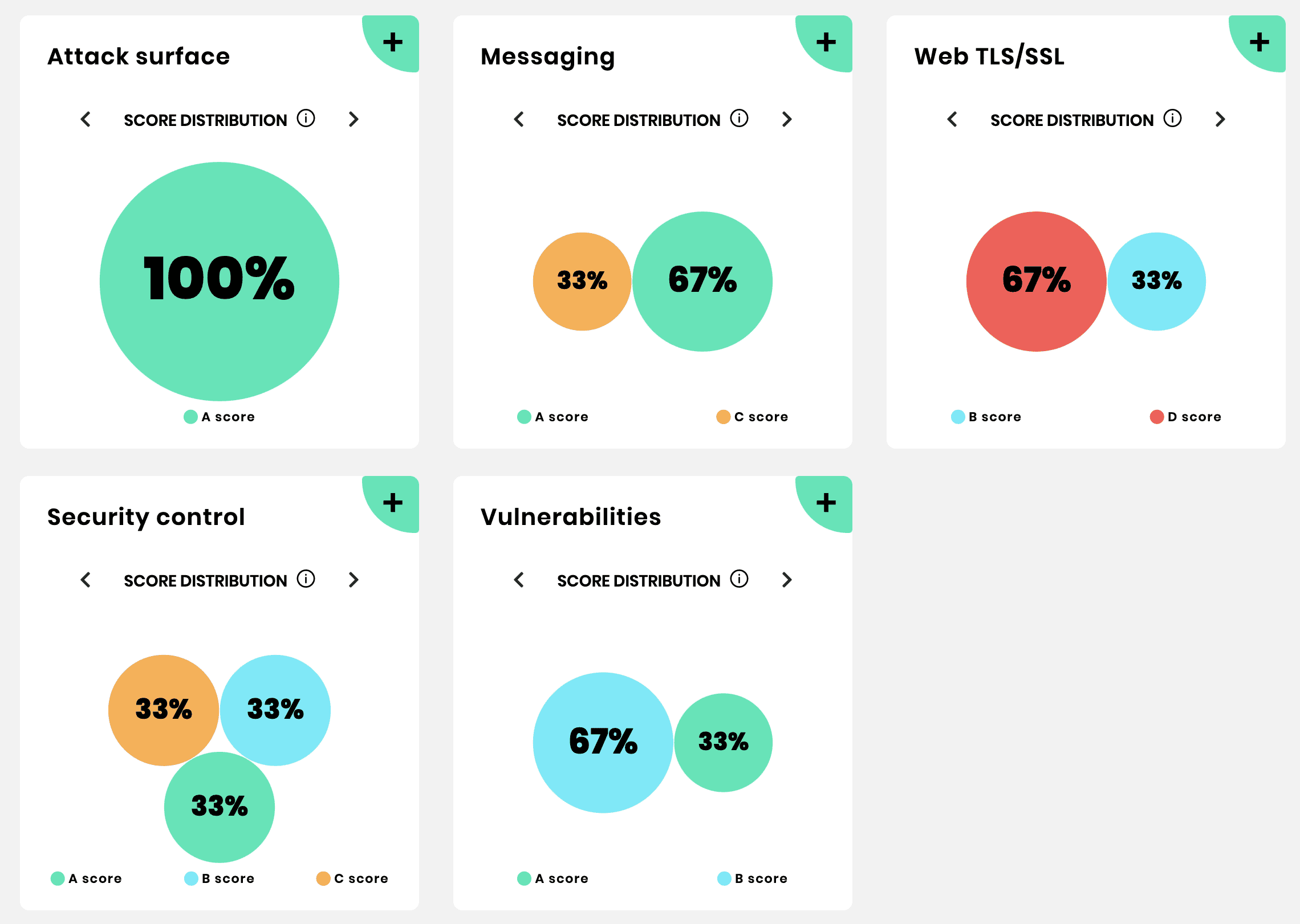Is your company adequately protected against cyberattacks? The unfortunate reality is that most companies aren’t. In fact, many businesses aren’t even sure where their gaps are, or what steps they need to take to become more secure.
Assessing and improving your cybersecurity posture is a complicated and ongoing process, but it’s one that even small- and medium-sized businesses can’t afford to ignore. A data breach, ransomware attack, or even just a few days of downtime can sink a company, or at least significantly damage its reputation and financial performance.
As malware becomes more sophisticated and data breaches become more common, cybercriminals are looking for whatever exploitable vulnerabilities they can find—and not just from the big multimillion corporations.
So, we’ll ask again: Is your company adequately protected against cyberattacks? If not, here are five ways you can improve your security posture. Additionally, if you’re concerned that your business may be vulnerable, please reach out to the cybersecurity professionals at Verdant TCS. We’d be more than happy to help.
1. HAVE MULTIPLE LAYERS OF SECURITY
The old adage “don’t put all your eggs in one basket” definitely applies to cybersecurity. Passwords can be compromised. Data breaches can happen. Mistakes can be made. If there’s only one layer of protection between a cybercriminal and your critical systems, you’re vulnerable.
Here are a few examples of ways you can implement a more secured, multilayered approach to your security:
- Use multifactor authentication and one-time passwords.
- Make multiple data backups with malware protection—both on-site and cloud-based—and air gap your backups (even with a cloud provider).
- Use real-time threat monitoring software, such as intrusion detection systems and other automation tools.
- Invest in comprehensive antivirus, anti-ransomware, anti-phishing, and other anti-malware software and keep it updated.
- Work with multiple security vendors (for example, intrusion detection systems from two or three top vendors).
RELATED: Ransomware Trends Are Getting Worse: Here’s How to Protect Yourself
2. GET YOUR WHOLE TEAM TO BUY IN
It’s a mistake to think of your business’ cybersecurity as exclusively the responsibility of your IT team, or even just software you install on every machine. Each and every person on your team can be a part of the solution.
After all, it’s not just computers that get “hacked.” Human beings are often the weak link into an otherwise secure system—for example, by being tricked into clicking a malicious link in an email, or giving up credit card information or access credentials to a cybercriminal posing as a colleague or supervisor. One simple mistake from one employee is sometimes all it takes.
Every person in your company (including employees and contractors who use your systems) should be trained to spot phishing attacks and other cybersecurity risks, keep their guard up, and report any suspicious activity immediately. Having your IT or cybersecurity team occasionally send out fake phishing attacks to test and train employees can be a great way to safely improve security awareness and evaluate the overall cybersecurity savviness of your team.
3. HAVE A RESPONSE AND RECOVERY PLAN
We’ve said it before, and we’ll say it again: There are only two types of companies. Those that have already been attacked, and those that haven’t been attacked yet.
No matter how well prepared you think you are for a cyberattack, your attitude should be to assume one is coming, and know what you’re going to do when it happens. Having a defined incident response plan for a data breach can help identify and contain the problem, limit the damage, and return as quickly as possible to normal operations.
Then, once you have a plan, test it. Have the team that manages your cybersecurity carry out simulated cyberattacks and evaluate your company’s response. Where were the gaps? Where is additional training or software needed? Do recovery testing on your backups as well to make sure that critical data can be restored if a real attack occurs.
RELATED: What Does the Recent Solarwinds Hack Mean For Your Business?
4. TRACK YOUR SECURITY METRICS
New cyber threats appear on a daily basis. Staying ahead of the game requires constant vigilance.
That’s why we’re excited to offer vAlmond, a sophisticated cloud platform that helps businesses understand, assess, and grade their overall security posture in real time from a simple, easy-to-use dashboard.
vAlmond helps identify gaps and vulnerabilities in your own system, as well as primary, secondary, and tertiary vendors. This allows you to make data-driven decisions and continuous security improvements, and ultimately respond faster to emerging cybersecurity threats.
You can also compare your company against industry benchmarks to get a clearer sense of your overall cybersecurity health and maturity.
Contact us today to schedule a demo. We’d be happy to show you how vAlmond can help your company make significant and ongoing improvements to your overall cybersecurity posture.
REACH OUT TO VERDANT TCS FOR HELP WITH YOUR CYBERSECURITY STRATEGY
If the constant news about major corporate hacks haven’t clued you in yet, it’s time to face facts: cybercrime is rampant, and cybersecurity is only going to get more important in the future.
The tactics used by hackers are always evolving. If your company doesn’t keep pace, it’s probably only a matter of time before you become a target.
Verdant TCS was founded to help businesses plan, implement, and support proactive cybersecurity strategies. We can work with you to find efficient, effective solutions to meet your organization’s security needs and help your business stay protected against emerging threats.
To learn more about our services or request a demo, give us a call at (616) 210-1760 or complete our simple contact form today.






